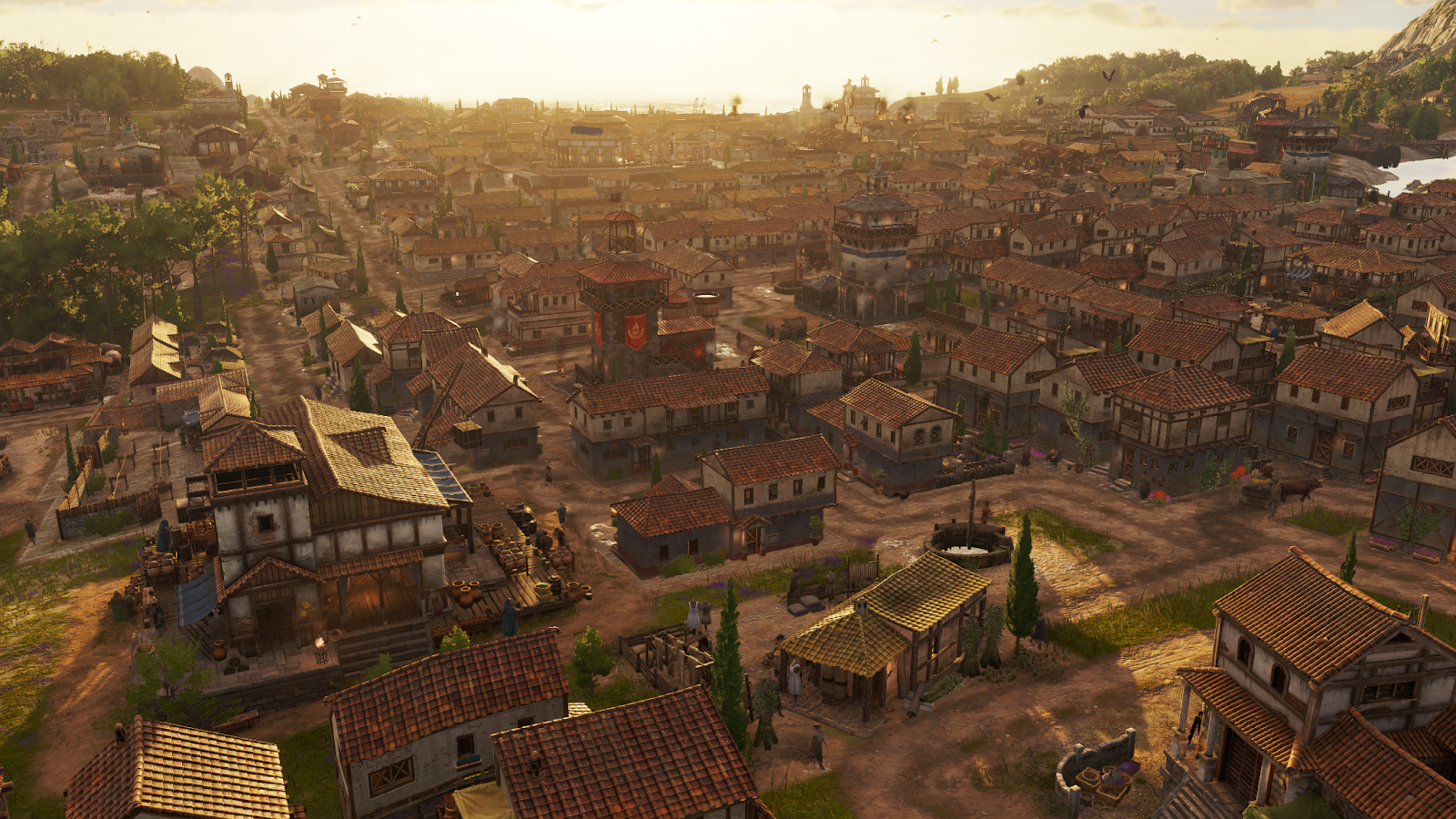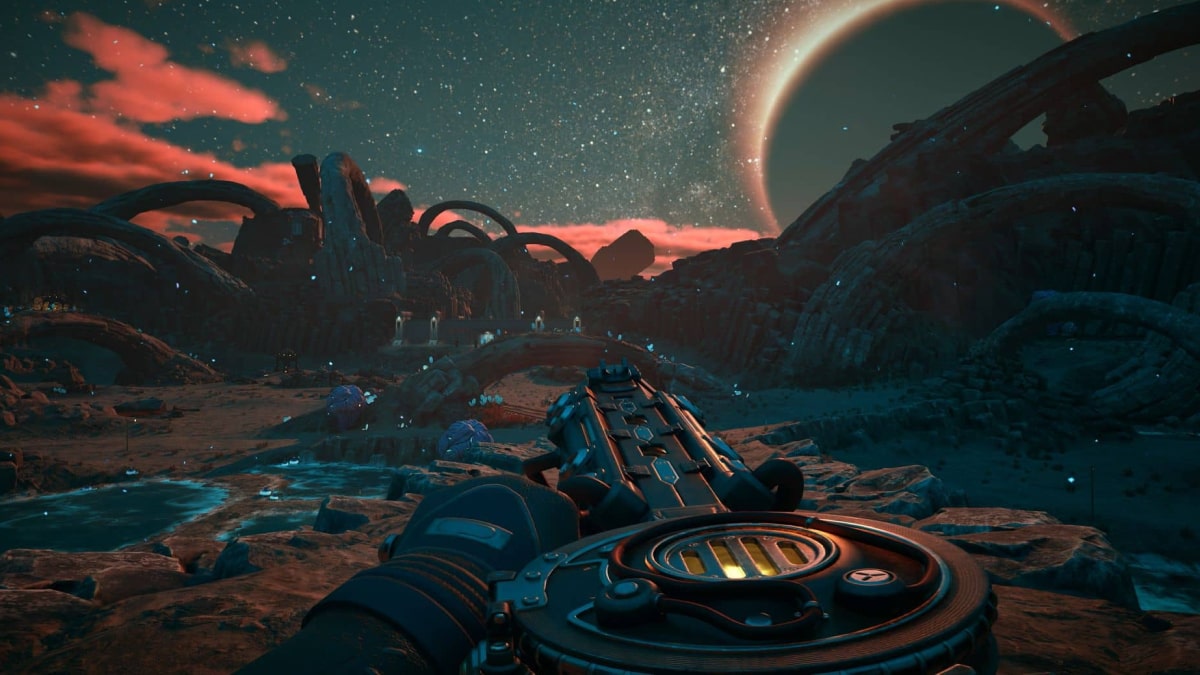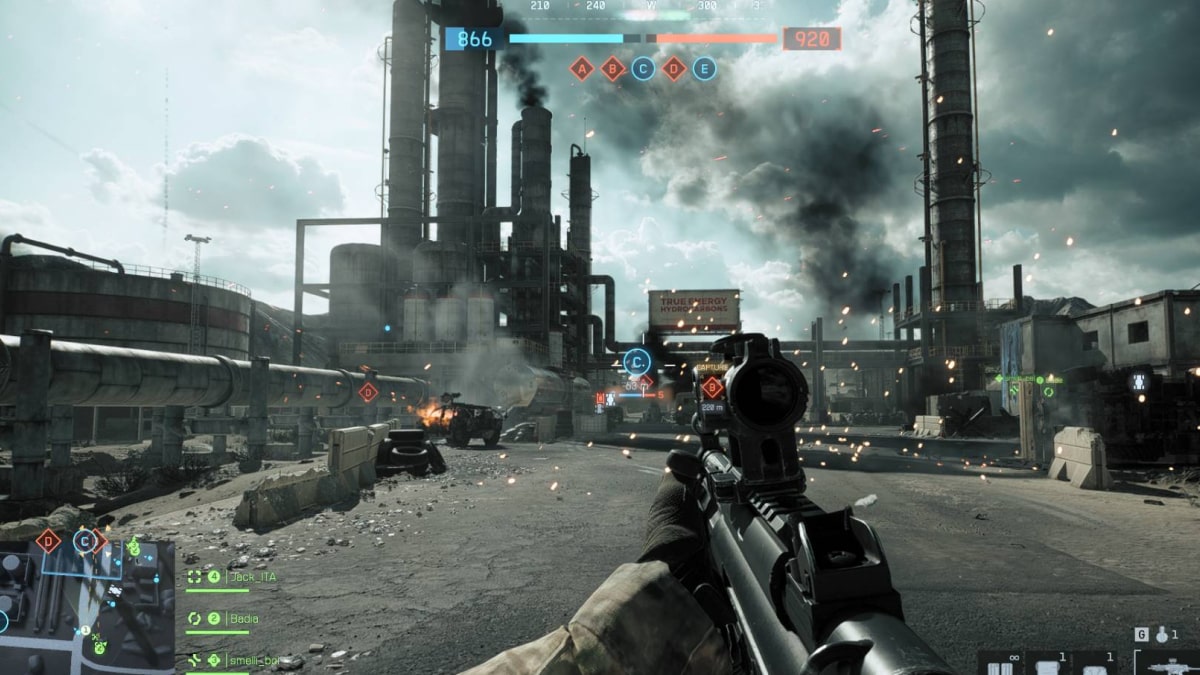You can trust VideoGamer. Our team of gaming experts spend hours testing and reviewing the latest games, to ensure you're reading the most comprehensive guide possible. Rest assured, all imagery and advice is unique and original. Check out how we test and review games here
Arriving on the island of Juliana, I vowed to fulfil the emperor’s wishes and bring the light of Rome to this uncharted place. However, I soon came to realise the land would not thrive under the rule of such a passive governor; to pave the right path forward for the people, whether to war or peace, I needed to be bolder.
This is the kind of risk-taking that Anno 117 rewards with its broad roster of clever city-building mechanics, which unfolds over time into a grand and generous story. This detail-heavy city builder offers a flamboyant interpretation of the Roman Empire that will have you needing to suspend your disbelief and make tough choices.
Bold stories
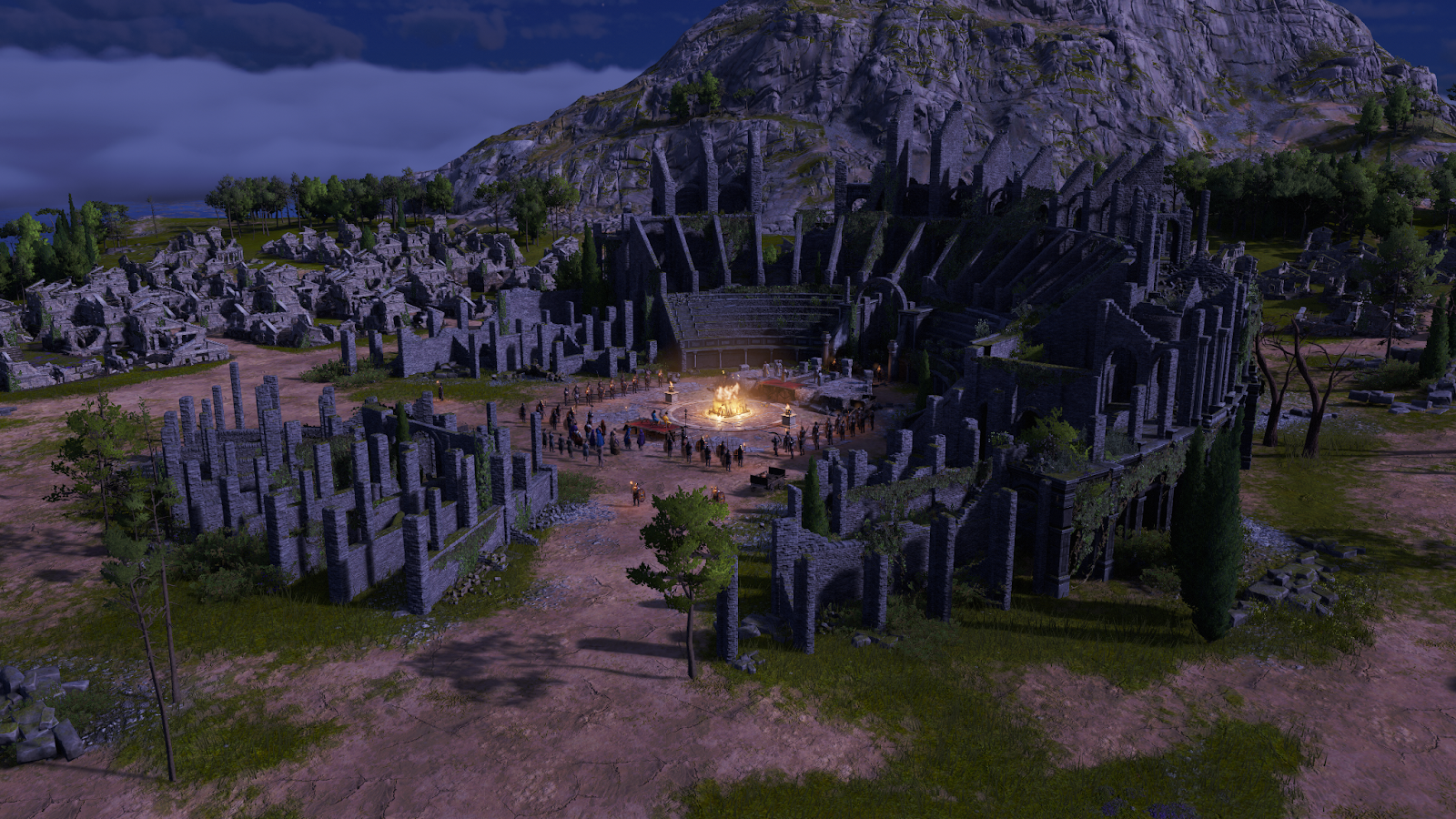
You start by choosing between siblings Marcus Naukratius or Marcia Tertia, both of whom act as the player proxy and are given control of a province in the heart of central Italy during the height of the Roman Empire. Eventually, you’ll be banished to a distant province, but first you must learn the ropes. While both characters and their stories provide useful throughlines to guide progress, the conflicts that drive their narratives are drastically different.
Marcus’ campaign closely mirrors your journey through the game. A naive Governor who soon realizes he’s bitten off more than he can chew, he does everything in his newfound power to please the emperor. The high expectations placed on him drive you to continue expanding your colonies and earn the people’s trust.
Marcia’s story is instead driven by deep political undertones. She must discover and hide the truth about the governor she stands in for, or suffer a fate worse than exile. With no political power, her value is decided by her husband’s status. While these topics were too dense for the game to unpack in their entirety, the well-written story keeps Marcia center stage.
The colourful cast that drives their stories is composed of other larger-than-life senators and attendants, each of whom is memorable in their own way. While their portrait-esque style makes them look uncanny when placed against the backdrops of a modernized ancient Rome, each has plenty of unique charm to prompt getting to know them as individuals.
But a governor doesn’t have time to know every person in the 20 houses they’ve just built, meaning NPCs are all condensed into caricatures of social classes who repeat the same voicelines like clockwork. It’s only when you zoom with the postcard view feature to watch them roam the mountains, work hard, or parade in the streets, that you’ll view them as more than numbers on a chart.
Rome wasn’t built on good manners
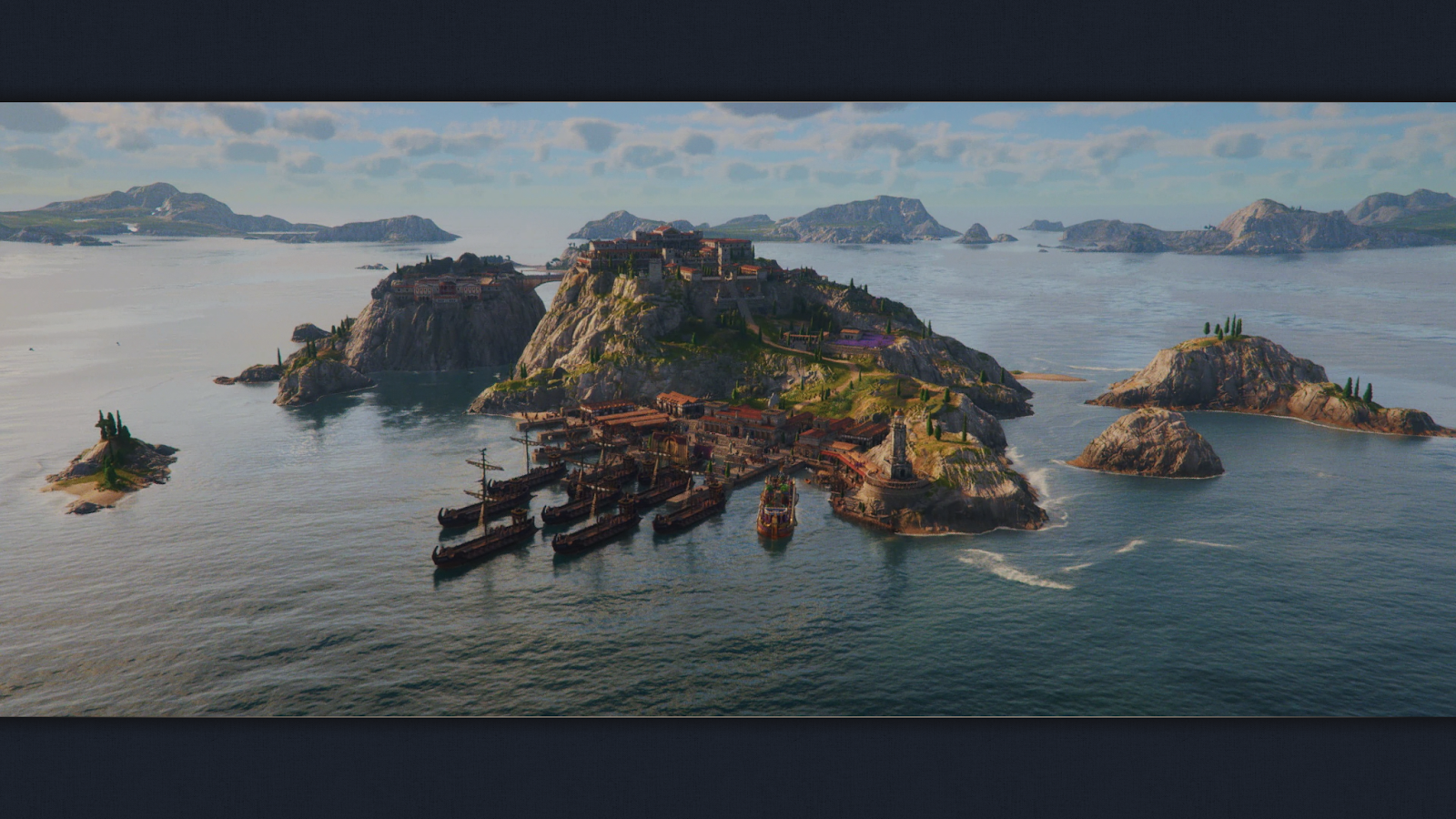
Intricately detailed buildings come together to make your cities look gorgeous. It’s the tiny details that bring them to life. You’ll stop regularly to marvel at a new development and see your cities up close. However, those without a powerful graphics card must beware. You’ll need some powerful hardware to appreciate all that you’ve built.
Zoom back out, and you’ll remember how cutthroat you’ve had to be to grow these colonies. To enjoy the experience, you’ll need to let Anno 117 wake the autocrat within you. The more you take control of your islands through building houses and public services, the more options for combat, trade, and expansion you’ll unlock.
This makes it all the more useful to plan building placements as you go along and map out which building would be most efficient in each location. Each building and monument has a unique size, a small area of effect, and other variables to juggle to make them their most productive. Efficiency is the name of the game, so giving your colonies individuality and making things pretty isn’t an option here.
This is the case for each of the many choices you’re asked to make. From religion to research, you must treat belief and knowledge as valuable resources to achieve your quest for maximum efficiency.
The noisy UI may show you what it’s like to juggle all the responsibilities of a governor, but it tries to say too much at once. Construction menus, quest notifications, and character dialogue quickly overlap on the screen. You’ll close the wrong menus, open ones you didn’t mean to, and dodge a multitude of distracting side quest notifications. These distractions gnaw away at any semblance of a flow state you may feel when constructing your cities.
These hints are particularly helpful for those who aren’t as familiar with the city builder genre, as they may find the guidance invaluable. However, if you want to focus on expanding your influence, the deluge of notifications and options may pull you out of the experience.
A conversation of cultures
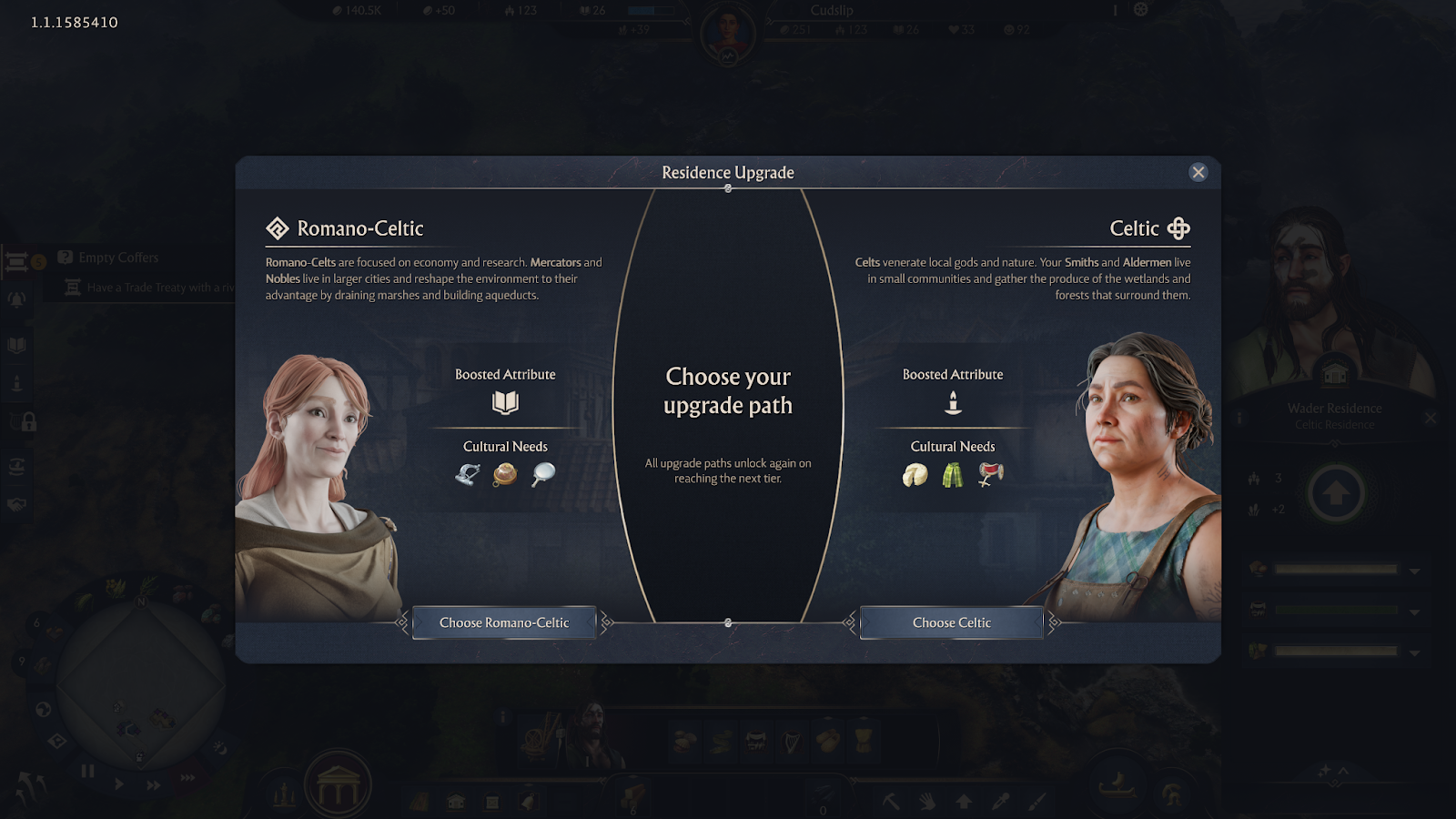
The UI is loud because Anno 117 has so much to say, and you’re free to pick up on any of the conversations it wants to start. You’ll only get the most out of this experience if you take full advantage of your authority over the people, which gives you power not just to build nations, but to change existing ones.
A turning point in the story will have you overseeing the construction of Albion, based on northern Celtic England, with mountainous terrain that tests how ruthless you’re willing to be. This is a far cry from the Roman heartland of Juliana and will sorely test your gubernatorial abilities.
Not only do the mountains make planning construction difficult, but they are also inhabited by the Celtic people. As governor, you decide whether their culture remains their own or if it becomes part of the world you control. This is one of the many discussions it encourages you to start about the ethics of cultural homogenization and historical colonization.
While you may find yourself wrestling with the decision, your choice will still likely be determined by what’s most efficient for you from a gameplay perspective. If the harsh climate of the mountains limits your growth and slows trade, then you’ll end up Romanizing this culture to make it more suited to your ambitions.
Long-term influence
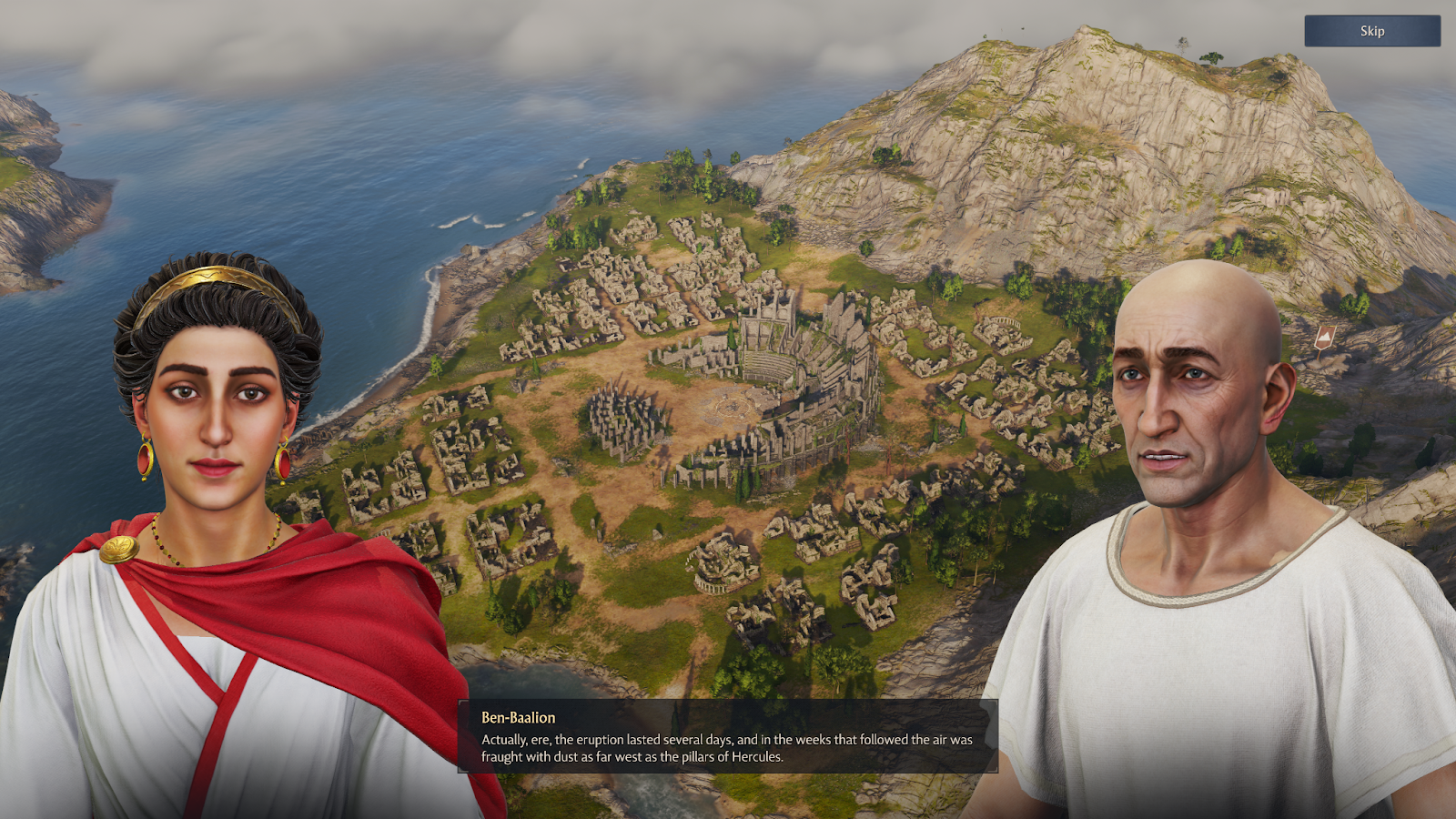
Complex but refined city-building systems are Anno 117’s greatest strength. The time you’d ordinarily spend planning aesthetic city layouts is here spent checking your income streams and resource charts before shifting your buildings accordingly to increase your numbers.
To make the most of the ever-growing list of mechanics, you can team up with another governor to expand influence faster. Although I haven’t played the multiplayer campaign, the sheer number of islands to colonize and the tasks that can be divided up suggest that this entry lends itself well to a shared experience.
For those who prefer a relaxed approach, Anno 117 may feel repetitive and arduous. By embracing all the autonomy and freedom it gives you, you’ll find an educational and engrossing experience with all the markers of a solid colony builder. Its ever-growing list of intuitive city-building mechanics makes it a solid entry into the strategic colony-building genre.
In this stunning depiction of the Roman Empire, your vision is absolute. If you can wade through the learning cliff that is Anno 117’s UI and mechanics, you’ll be rewarded with a detailed and immersive experience that’ll scratch even the most esoteric strategic itch.
Reviewed on PC. Code provided by the publisher.
